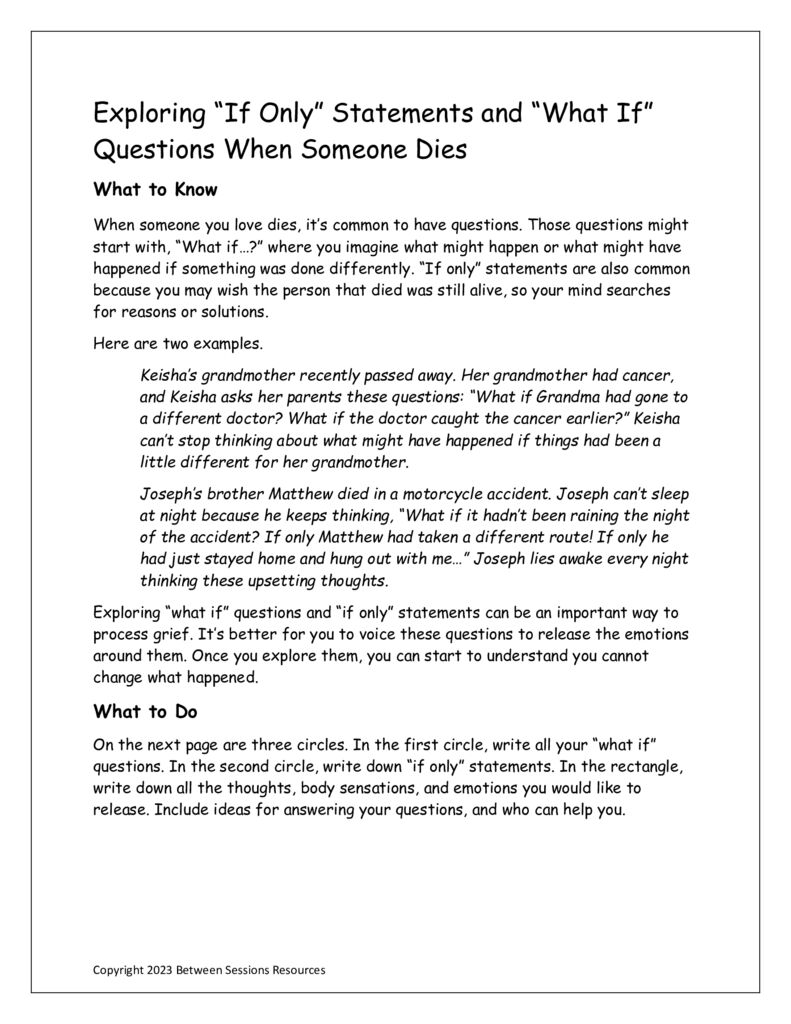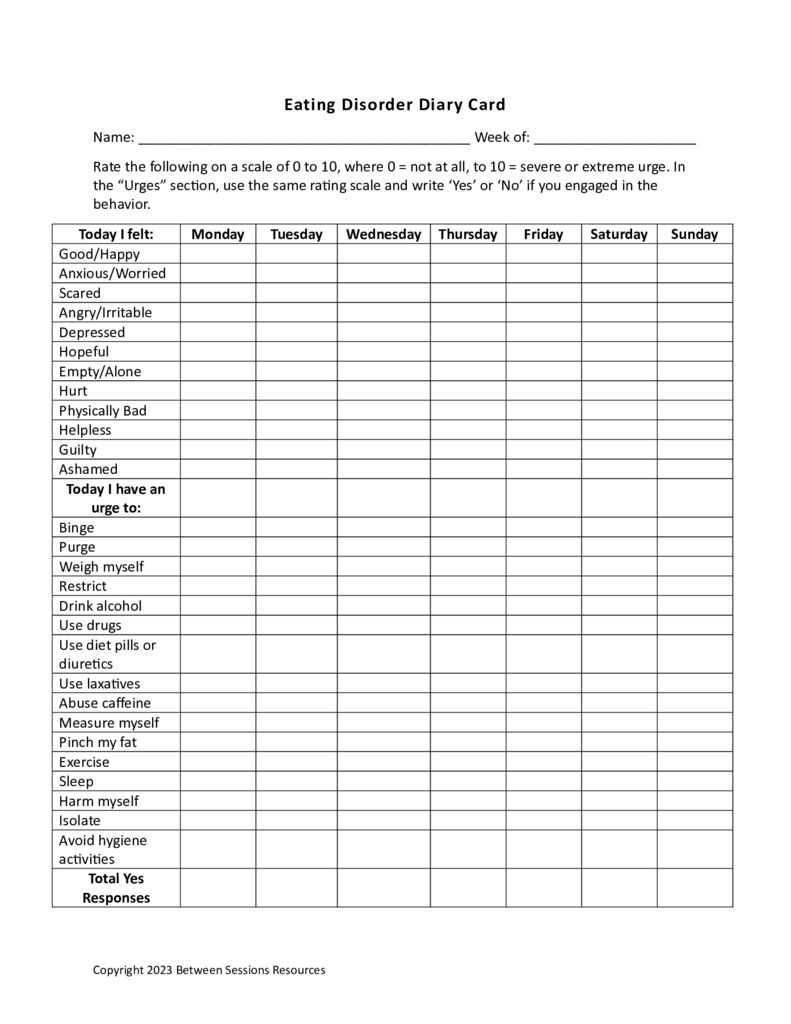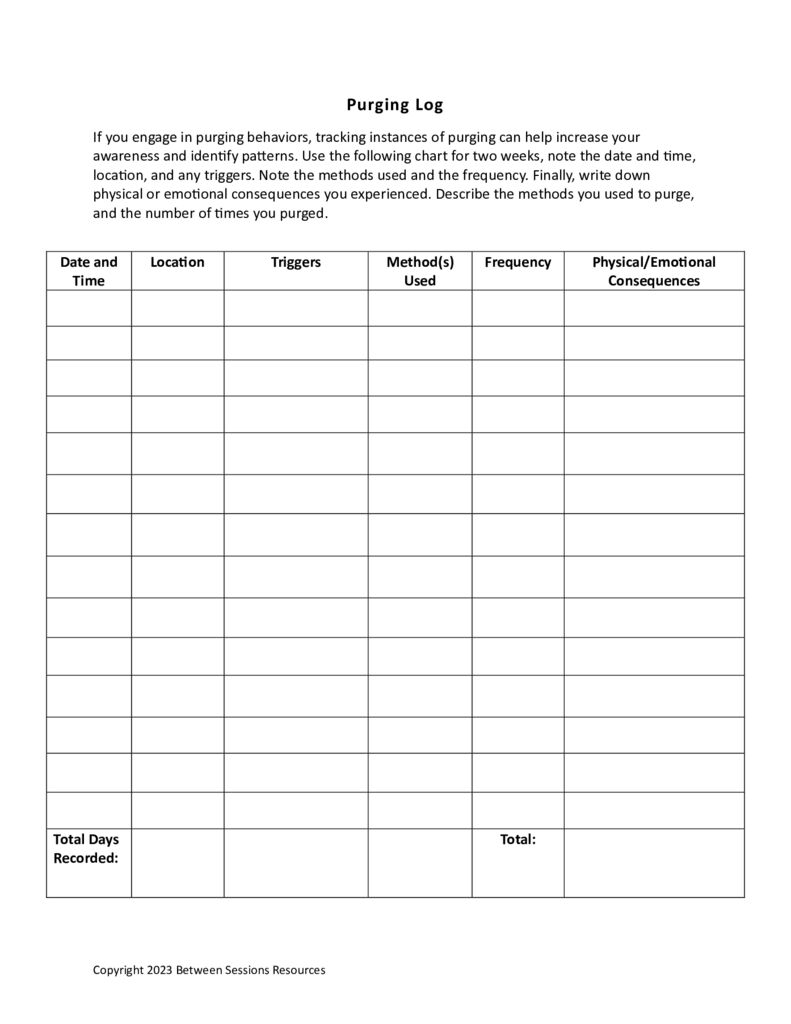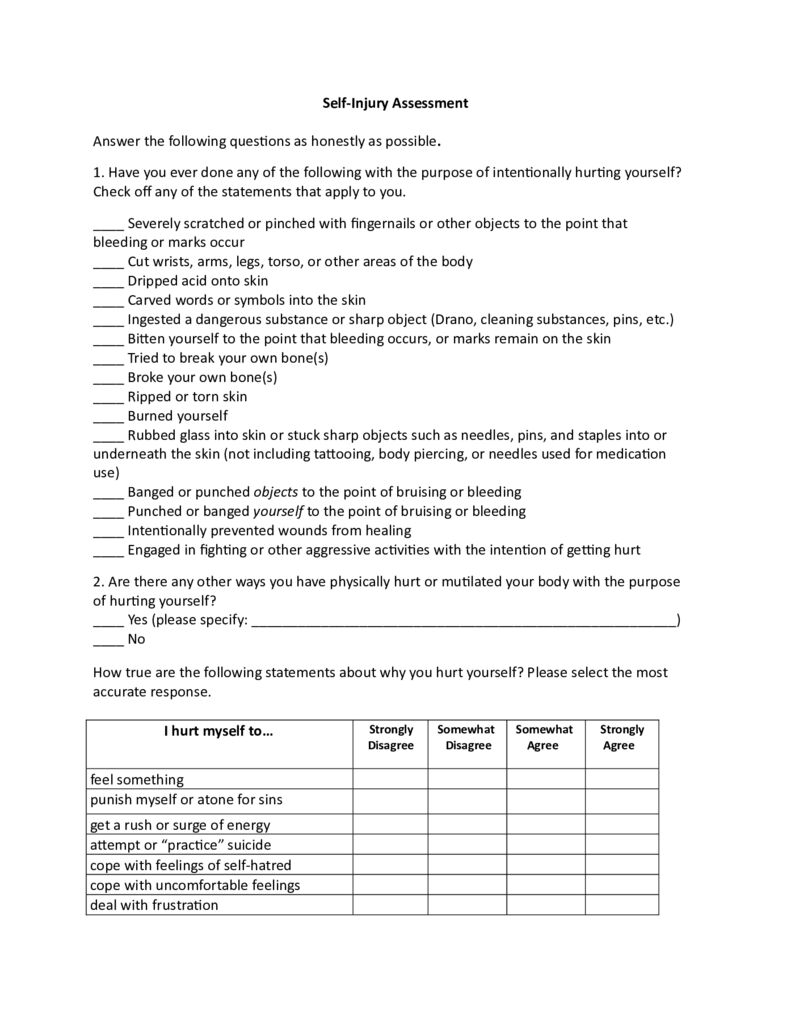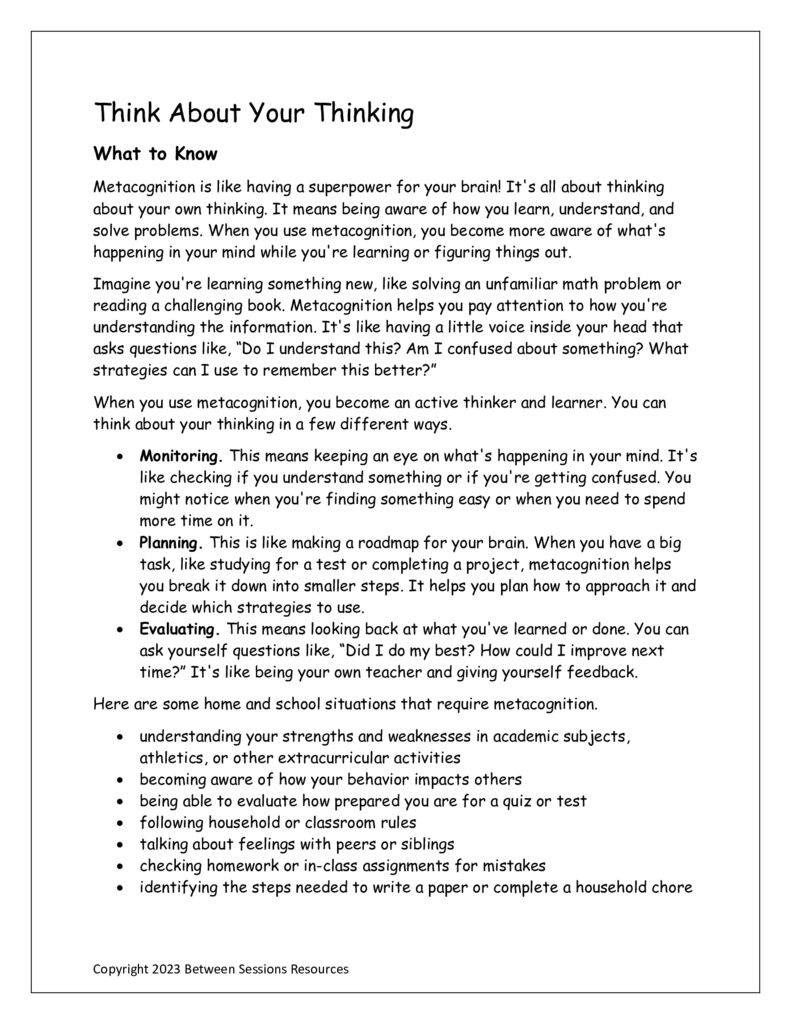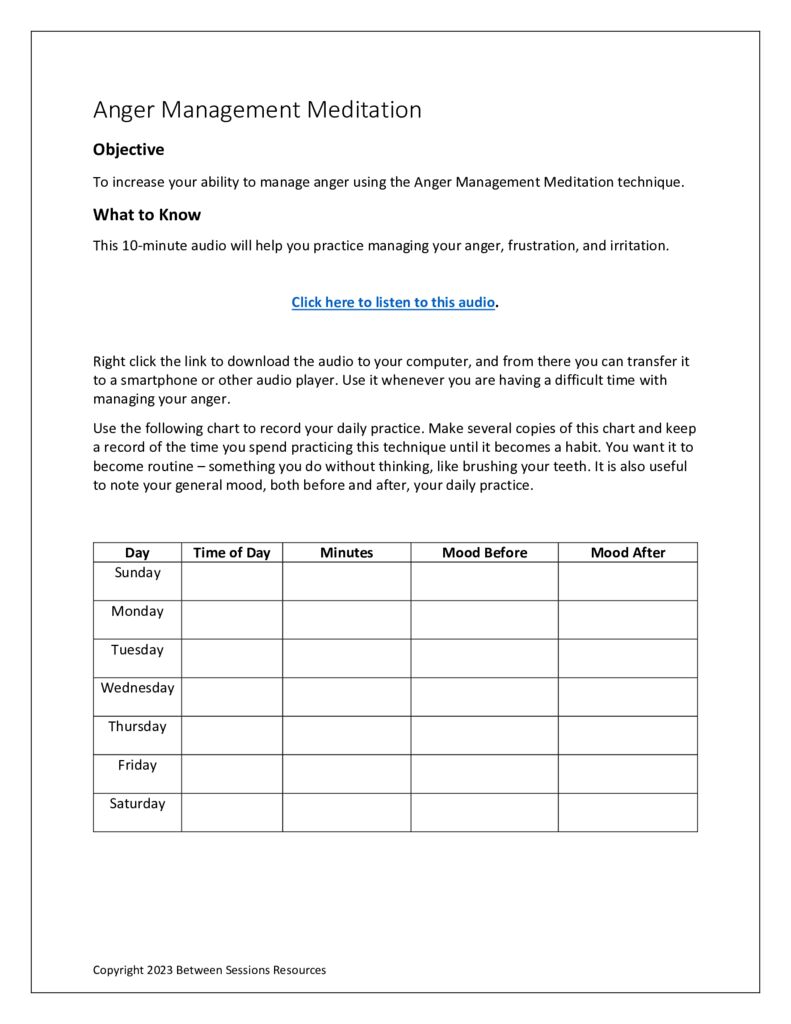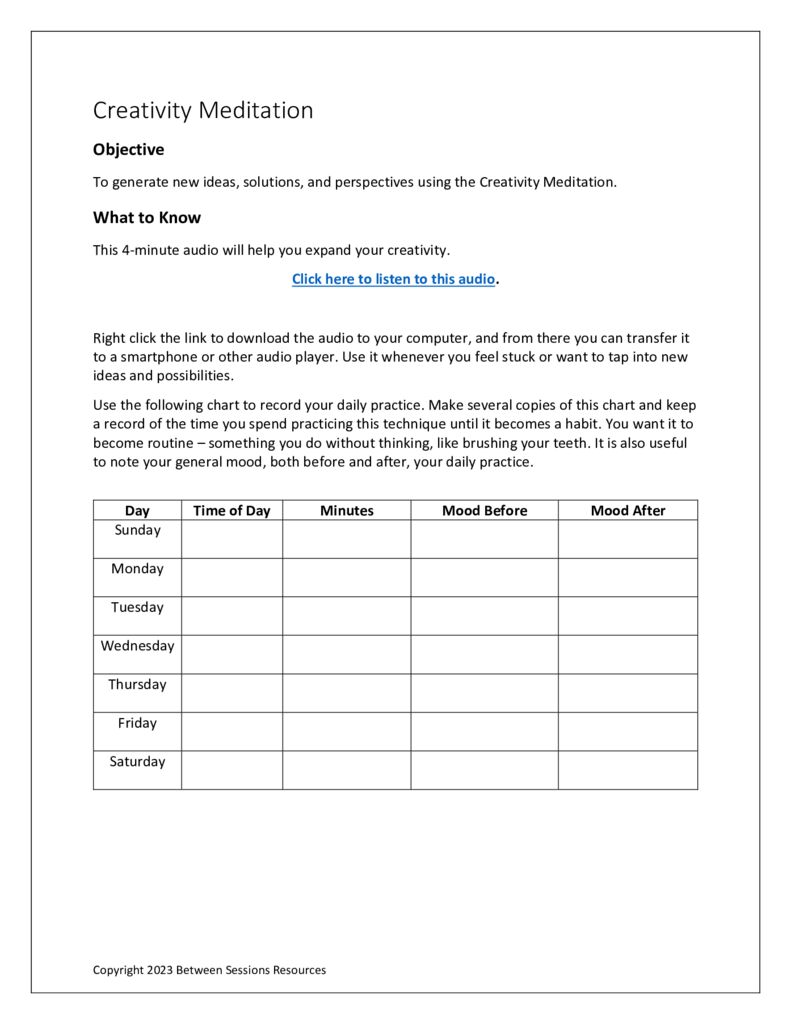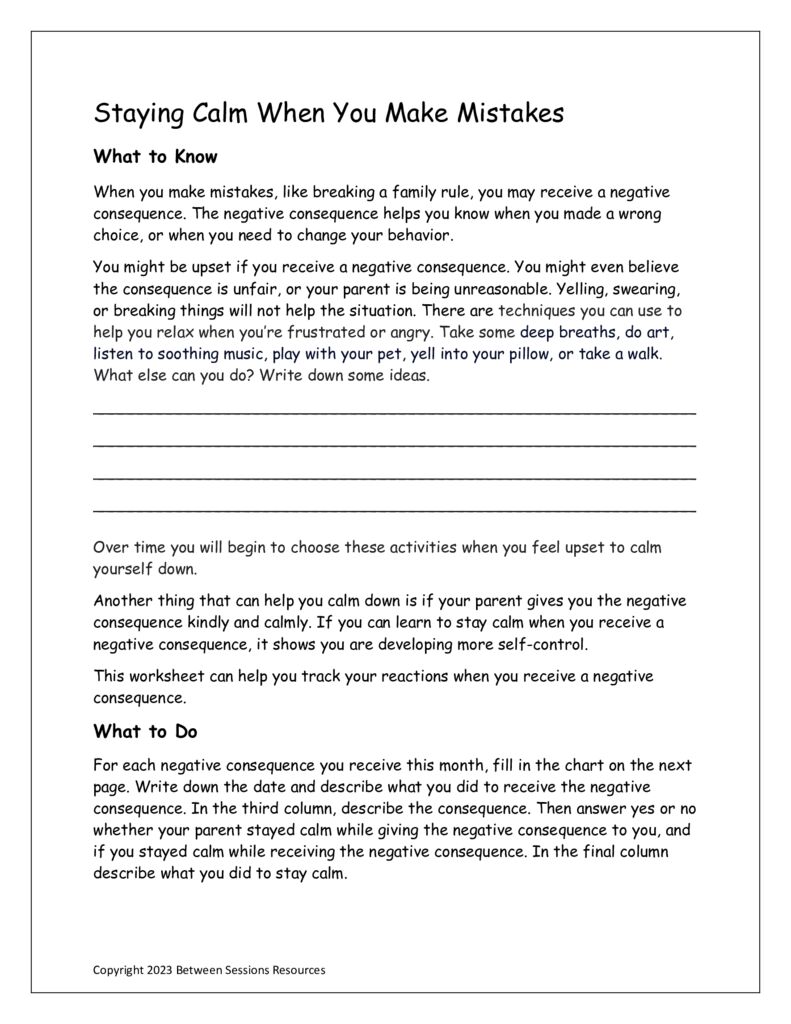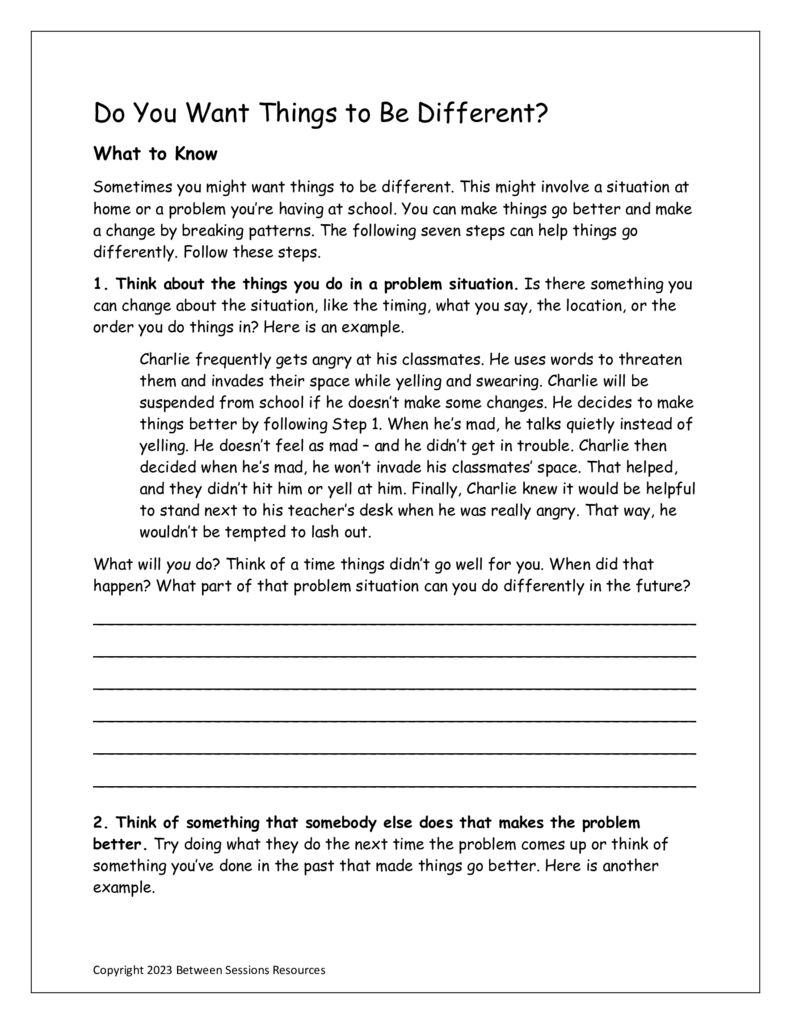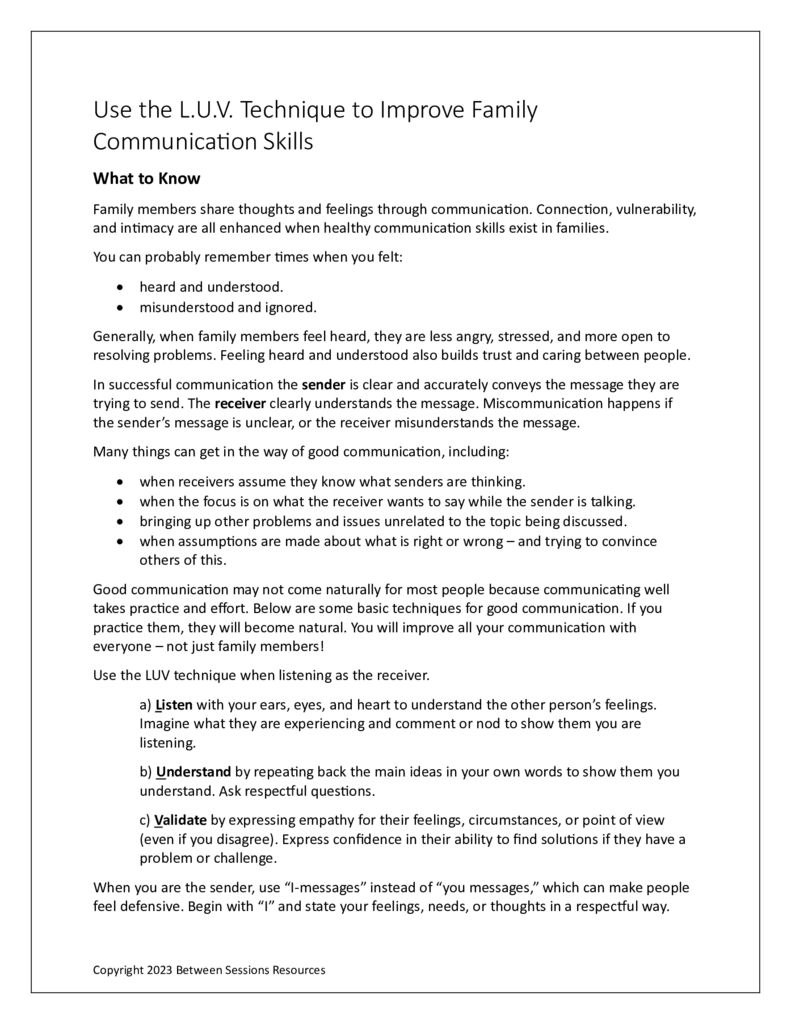Teens have a special way of communicating and learning about themselves, so we’ve made sure that all our therapeutic activities for teens are appealing and engaging to this age group.
To modify the tools, click the ‘Send to Client’ button by each tool to open the Psychology Forms Filler. You can then edit the tool as you see fit and either print it out or send it to a client to be filled out online. Click here for a tutorial on using the Psychology Forms Filler.
We’ve tried to address every teen issue we can think of, and more tools are added every week!
If you are looking for something you can’t find on this site, please let us know by clicking here and our team of writers, graphic artists, and therapists will custom-design it for you.
Exploring “what if” questions and “if only” statements can be an important way for teens to process grief. While this may seem to some that teens are trying to “re-write” the past with these questions, in fact voicing these questions helps them express and understand the emotions connected with their loss. Exploring these questions can help facilitate the eventual acceptance of the loss and stimulate the healing process. (0723. grief, loss, death)
This daily diary asks people to indicate their mood and eating behavior urges they experienced. (0623, eating disorder, behavioral chart, data collection)
This log can be used by clients to help them become more aware of their purging, triggers, and physical and emotional consequences. (0623, bulimia, eating disorders, data collection)
This assessment is designed to understand the nature of a person’s self-injury including the type of self-injury they engage in, the reasons they hurt themselves, their history of self-injury, and more. (0623, self-injury)
This worksheet is designed to help teens understand the concept of “metacognition” or thinking about their thinking. It’s designed to help teens develop a variety of executive functioning activities including problem-solving, goal-setting, and time management. (0623, executive functioning, memory, problem-solving)
This 10-minute audio is designed to help people learn self-calming skills and let go of their anger. The worksheet includes a chart for people to keep track of their meditation sessions and a transcript of the audio. (0523, anger management, anger control, emotional regulation)
This four-minute audio meditation is designed to stimulate problem-solving and creativity. (0323, problem-solving, stuck, stress reduction)
This worksheet is designed to help teens accept the consequences of their actions when they make mistakes such as breaking family rules. (0323, behavior, anxiety, anger control)
This worksheet teaches teens seven strategies to look at their problems differently, including: looking at how others have handled a similar problem, acknowledging feelings, but understanding that they don’t determine actions; communicating with others more effectively. (0323, decision-making, solution-focused therapy, problem-solving, impulse control)
This worksheet was developed to help families develop better communication skills. It describes the LUV technique which teaches family members to Listen, Understand, and Validate. It encourages the use of I-Messages and compliments and discourages negative communication like put-downs and criticism. A chart is provided to keep track of how family members use these tools at a family meeting. (0323, communication, family therapy)

